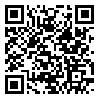مجله رویش روانشناسی از دادن گواهیهای کاغذی معذور است. لطفا تقاضا نکنید. همه گواهی ها در صفحه شخصی کاربران موجود است.
year 13, Issue 9 (Atumn 2024 2024)
Rooyesh 2024, 13(9): 121-130 |
Back to browse issues page
Download citation:
BibTeX | RIS | EndNote | Medlars | ProCite | Reference Manager | RefWorks
Send citation to:



BibTeX | RIS | EndNote | Medlars | ProCite | Reference Manager | RefWorks
Send citation to:
Ghanavati M, Joharifard R, Ehteshamzadeh P. (2024). The effectiveness of emotion-based group family therapy on self-differentiation and dyslexia in adolescent girls with psychosomatic disorders. Rooyesh. 13(9), 121-130.
URL: http://frooyesh.ir/article-1-5385-en.html
URL: http://frooyesh.ir/article-1-5385-en.html
1- Ph.D. student in Psychology, Ahvaz Branch, Islamic Azad University, Ahvaz, Iran.
2- Assistant Professor, Department of Psychology, Ahvaz Branch, Islamic Azad University, Ahvaz, Iran. ,rjoharifard@gmail.com
3- Associate Professor, Department of Psychology, Ahvaz Branch, Islamic Azad University, Ahvaz, Iran.
2- Assistant Professor, Department of Psychology, Ahvaz Branch, Islamic Azad University, Ahvaz, Iran. ,
3- Associate Professor, Department of Psychology, Ahvaz Branch, Islamic Azad University, Ahvaz, Iran.
Abstract: (1310 Views)
The purpose of this study was to determine the effectiveness of emotion-based group family therapy on self-differentiation and dyslexia in adolescent girls with psychosomatic disorders. The research method was semi-experimental with a pre-test-post-test design with a control group. The statistical population in this research was all teenagers aged 14 to 18 who had the criteria of psychosomatic disorders in Ahvaz city and their parents in 2023, who had been referred to counseling and psychotherapy centers in Ahvaz city. Among them, 40 people, 20 people in the control group and 20 people in the experimental group were selected through the purposeful sampling method and were randomly divided into two groups. To collect data, the differentiation questionnaires of Skowron and Friedlander (DSI, 1998), Bagby et al.'s (TAS, 1994) ataxia, and emotion-based group family therapy protocol were used during 5 90-minute sessions. To analyze the data, the multivariate covariance test (MANCOVA) was used. The findings of the research showed that by controlling the effect of the pre-test, there was a significant difference at the level of 0.05 between the mean of the post-test of self-differentiation and aphasia in the two experimental and control groups. As a result, emotion-based group family therapy can be considered an effective intervention for adolescent girls with psychosomatic disorders.
Keywords: Emotion-Based group Family Therapy, Self-Differentiation, Psychosomatic Disorders, Dyslexia.
Type of Article: Research |
Subject:
General Psychology
Received: 2024/05/10 | Accepted: 2024/06/2 | ePublished: 2025/01/29
Received: 2024/05/10 | Accepted: 2024/06/2 | ePublished: 2025/01/29
Send email to the article author
| Rights and permissions | |
 |
This work is licensed under a Creative Commons Attribution-NonCommercial 4.0 International License. |





